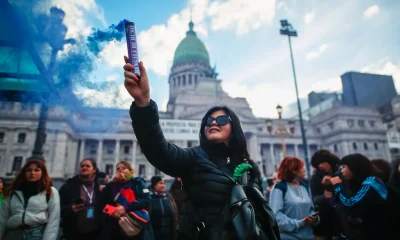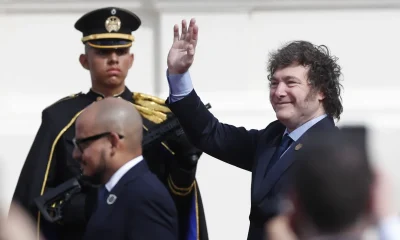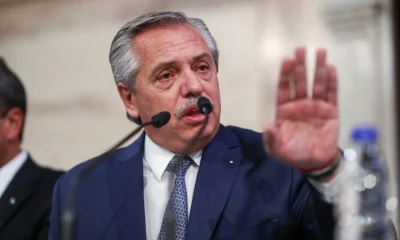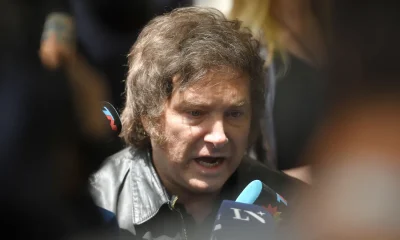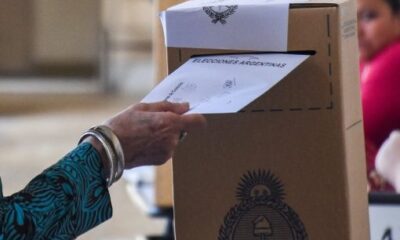International
MEP Miguel Urbán charges Milei for questioning the historical memory
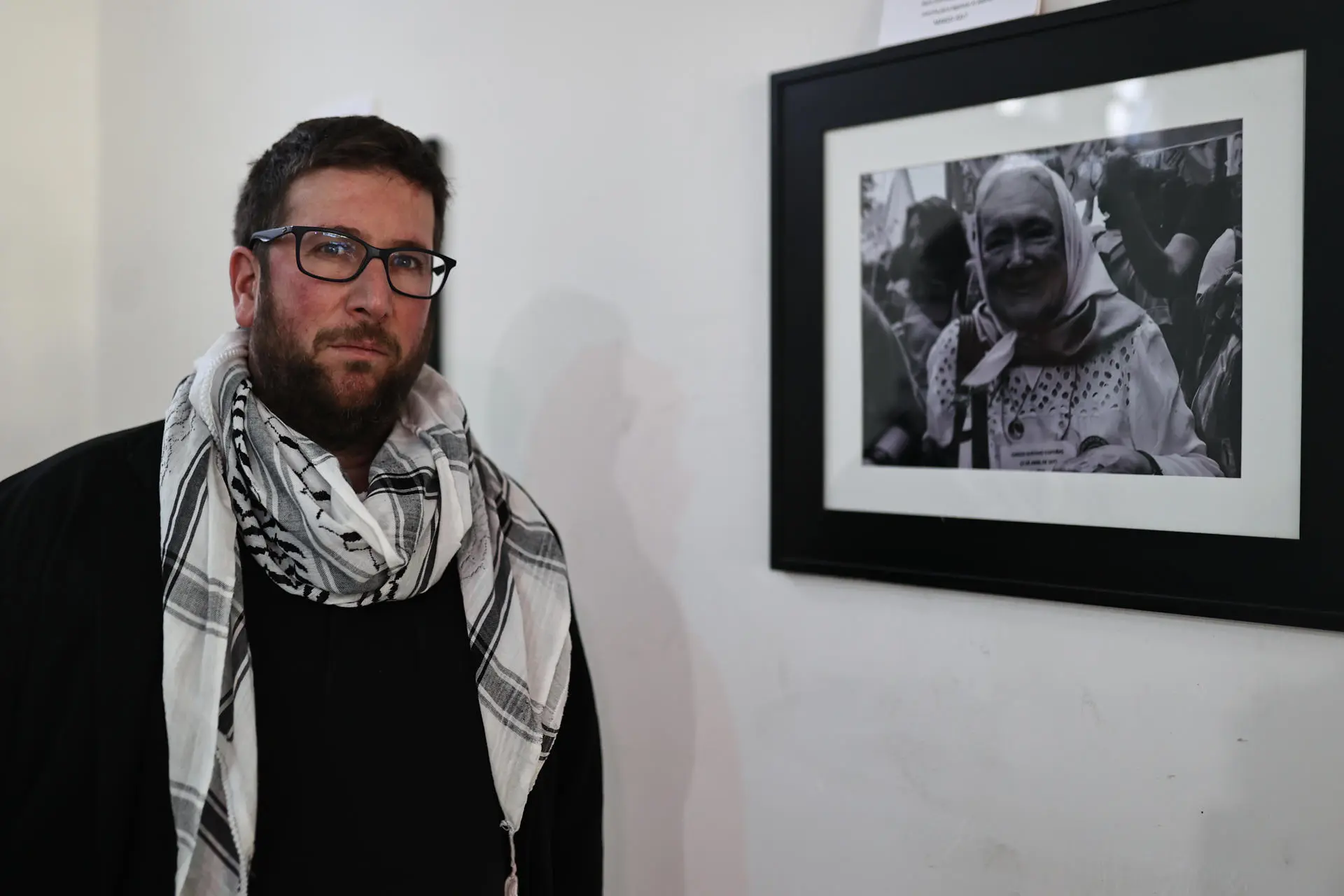
Spanish MEP Miguel Urbán considers that the Government of Argentina, headed by the ultraliberal Javier Milei, and other far-right-wing Executives of the world seek to question the policies of historical memory so that the flame of the struggle of the present cannot be ignited in the reading of the past.”
“It is a common feature and a deliberate attack on what the democratic foundations would be,” says in an interview with EFE in Buenos Aires, this member of the European Parliament since 2015, a central figure of the Anti-Capitalist political organization – which was integrated into Podemos from its foundation until 2020 -, and author of the essay ‘Trumpisms’.
Urbán, son of a communist militant tortured during the Franco dictatorship (1939-1975) by the policeman Antonio González Pacheco, better known as ‘Billy el Niño’, is in the Argentine capital to, among other reasons, accompany other victims grouped under the so-called ‘Argentine complaint’ against the crimes of the Franco regime.
In addition, this Sunday he will participate in the mobilization that will take place in Buenos Aires within the framework of March 24, Day of Remembrance for Truth and Justice, in which the victims of the last Argentine military dictatorship (1976-1983) are commemorated, on the anniversary of the coup d’état that overthreuched the democratic powers of the South American country.
The Government of Milei – and particularly the vice president, Victoria Villarruel, with family ties with the military and accused of ‘denialism’ of the crimes of the dictatorship by associations that defend human rights in Argentina – has been equidistant with this symbolic day.
“Obviously we are witnessing a questioning of memory as a questioning of democracy,” says Urbán, who considers that this type of policy is the same as those used by other far-right leaders in the world, such as the Portuguese André Ventura, leader of the Chega! party, or the Spanish Santiago Abascal, president of Vox.
Urbán attributes this trend to the “element of the cultural battle”, usually argued by reactionary leaders to position himself “against the ‘cowardly right’ that does not question the ‘progressive dictatorship’.”
The MEP thinks that Milei is nothing more than “the Argentine decline of this global reactionary wave” that he describes in his latest book and that he presented this Friday in Buenos Aires.
“These phenomena start from eating the political space of the international right (…) Milei could not have been president if he had not managed to get the right to prefer to support him rather than a ‘right-wing uncle’ like Sergio Massa (the presidential candidate of Peronism in the 2023 elections),” says the MEP.
Urbán considers that “the same radicalization” motivated prominent conservative leaders – among them, the former president of the Spanish Government Mariano Rajoy (2011-2018) – to ask for the vote for the far-right Milei in the last Argentine elections.
“(The phenomenon of the extreme right) is not a European measles,” warns Urbán, who calls the importance of the communication skills of far-right leaders or issues such as the rise of disinformation “peripheral”.
“We could not understand this global reactionary wave without understanding that we are facing a real crisis of the regime of capitalism; a crisis resulting from the combination of the neoliberal governance crisis (…) and, on the other hand, the ecological crisis and climate change that constitute a kind of ‘cancellation of the future’,” explains Urbán.
Faced with the anxiety of the present, the MEP, who participated in the 15-M movement (or ‘of the indignadomen’) in Spain in 2011, believes that the extreme right proposes an imaginary of the past “known and that gives assurances.”
“It’s a matter of passion and not of reason,” says Urbán.
In this sense, the MEP believes that Milei’s ultra-liberal positions are more difficult to “inoculate” than those of the Salvadoran president, Nayib Bukele, characterized by his harshness in police action against the violent gangs of the Central American country.
International
Deportation flight lands in Venezuela; government denies criminal gang links

A flight carrying 175 Venezuelan migrants deported from the United States arrived in Caracas on Sunday. This marks the third group to return since repatriation flights resumed a week ago, and among them is an alleged member of a criminal organization, according to Venezuelan authorities.
Unlike previous flights operated by the Venezuelan state airline Conviasa, this time, an aircraft from the U.S. airline Eastern landed at Maiquetía Airport, on the outskirts of Caracas, shortly after 2:00 p.m. with the deportees.
Interior Minister Diosdado Cabello, who welcomed the returnees at the airport, stated that the 175 repatriated individuals were coming back “after being subjected, like all Venezuelans, to persecution” and dismissed claims that they belonged to the criminal organization El Tren de Aragua.
However, Cabello confirmed that “for the first time in these flights we have been carrying out, someone of significance wanted by Venezuelan justice has arrived, and he is not from El Tren de Aragua.” Instead, he belongs to a gang operating in the state of Trujillo. The minister did not disclose the individual’s identity or provide details on where he would be taken.
International
Son of journalist José Rubén Zamora condemns father’s return to prison as “illegal”
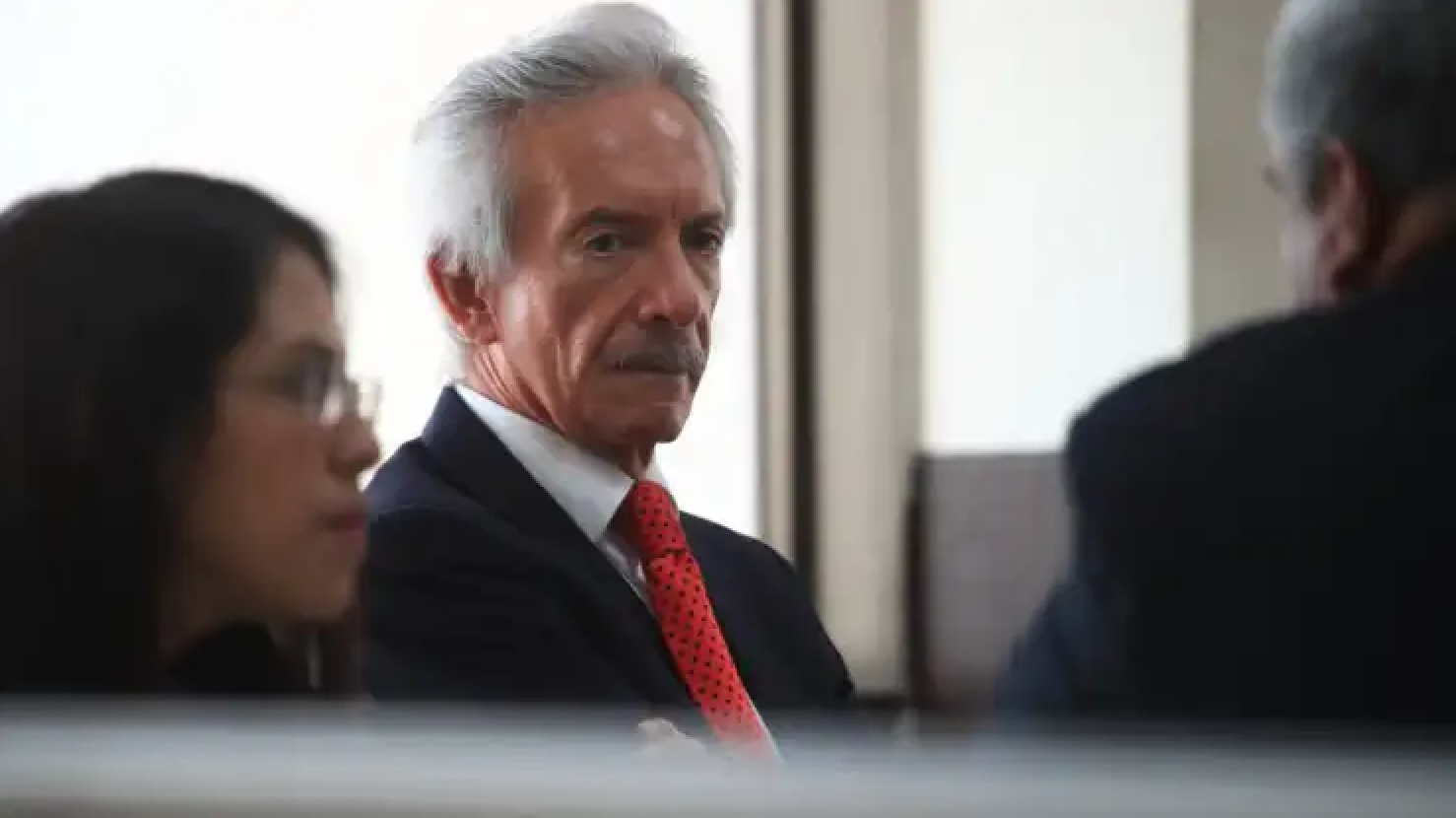
The son of renowned journalist José Rubén Zamora Marroquín, José Carlos Zamora, has denounced as “illegal” the court order that sent his father back to a Guatemalan prison on March 3, after already spending 819 days behind barsover a highly irregular money laundering case.
“My father’s return to prison was based on an arbitrary and illegal ruling. It is also alarming that the judge who had granted him house arrest received threats,” José Carlos Zamora told EFE in an interview on Saturday.
The 67-year-old journalist was sent back to prison inside the Mariscal Zavala military barracks on March 3, when Judge Erick García upheld a Court of Appeals ruling that overturned the house arrest granted to him in October. Zamora had already spent 819 days in prison over an alleged money laundering case.
His son condemned the situation as “unacceptable”, stating that the judge handling the case “cannot do his job in accordance with the law due to threats against his life.”
International
Miyazaki’s style goes viral with AI but at what cost?
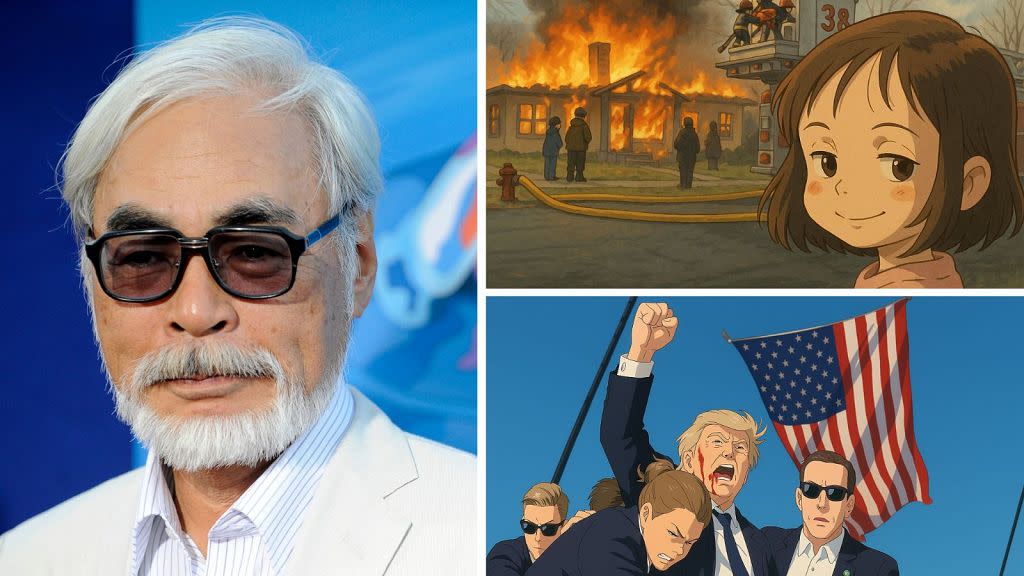
This week, you may have noticed that everything—from historical photos and classic movie scenes to internet memes and recent political moments—has been reimagined on social media as Studio Ghibli-style portraits. The trend quickly went viral thanks to ChatGPT and the latest update of OpenAI’s chatbot, released on Tuesday, March 25.
The newest addition to GPT-4o has allowed users to replicate the distinctive artistic style of the legendary Japanese filmmaker and Studio Ghibli co-founder Hayao Miyazaki (My Neighbor Totoro, Spirited Away). “Today is a great day on the internet,” one user declared while sharing popular memes in Ghibli format.
While the trend has captivated users worldwide, it has also highlighted ethical concerns about AI tools trained on copyrighted creative works—and what this means for the livelihoods of human artists.
Not that this concerns OpenAI, the company behind ChatGPT, which has actively encouraged the “Ghiblification”experiments. Its CEO, Sam Altman, even changed his profile picture on the social media platform X to a Ghibli-style portrait.
Miyazaki, now 84 years old, is known for his hand-drawn animation approach and whimsical storytelling. He has long expressed skepticism about AI’s role in animation. His past remarks on AI-generated animation have resurfaced and gone viral again, particularly when he once said he was “utterly disgusted” by an AI demonstration.
-

 International4 days ago
International4 days agoFederal court blocks Trump’s use of Enemy Alien Act for deportations
-

 Central America4 days ago
Central America4 days agoHonduran group in U.S. pushes for voter registration to prevent election fraud
-

 Central America4 days ago
Central America4 days agoKristi Noem in Latin America: Talks with Bukele on expulsions and security policies
-

 International4 days ago
International4 days agoEcuador oil spill worsens as containment dam collapses
-

 Central America3 days ago
Central America3 days agoNicaragua denounces Costa Rica’s position in SICA as aligned with foreign interests
-

 Central America3 days ago
Central America3 days agoNicaragua’s new judicial law consolidates power in Ortega and Murillo’s hands
-
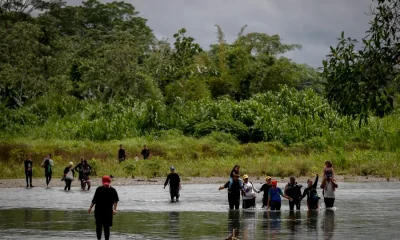
 Central America3 days ago
Central America3 days agoPanama’s president declares Darién gap ‘closed’ amid sharp drop in migrant flow
-

 International3 days ago
International3 days agoMarco Rubio warns Venezuela against military action against Guyana
-

 International1 day ago
International1 day agoSon of journalist José Rubén Zamora condemns father’s return to prison as “illegal”
-

 International1 day ago
International1 day agoMiyazaki’s style goes viral with AI but at what cost?
-

 Central America6 hours ago
Central America6 hours agoPanama police clarifies that Interpol alert for Martinelli is still pending
-

 International6 hours ago
International6 hours agoDeportation flight lands in Venezuela; government denies criminal gang links
-
Central America2 days ago
Nicaragua revokes legal status of 10 more NGOs, bringing total to over 5,600


















